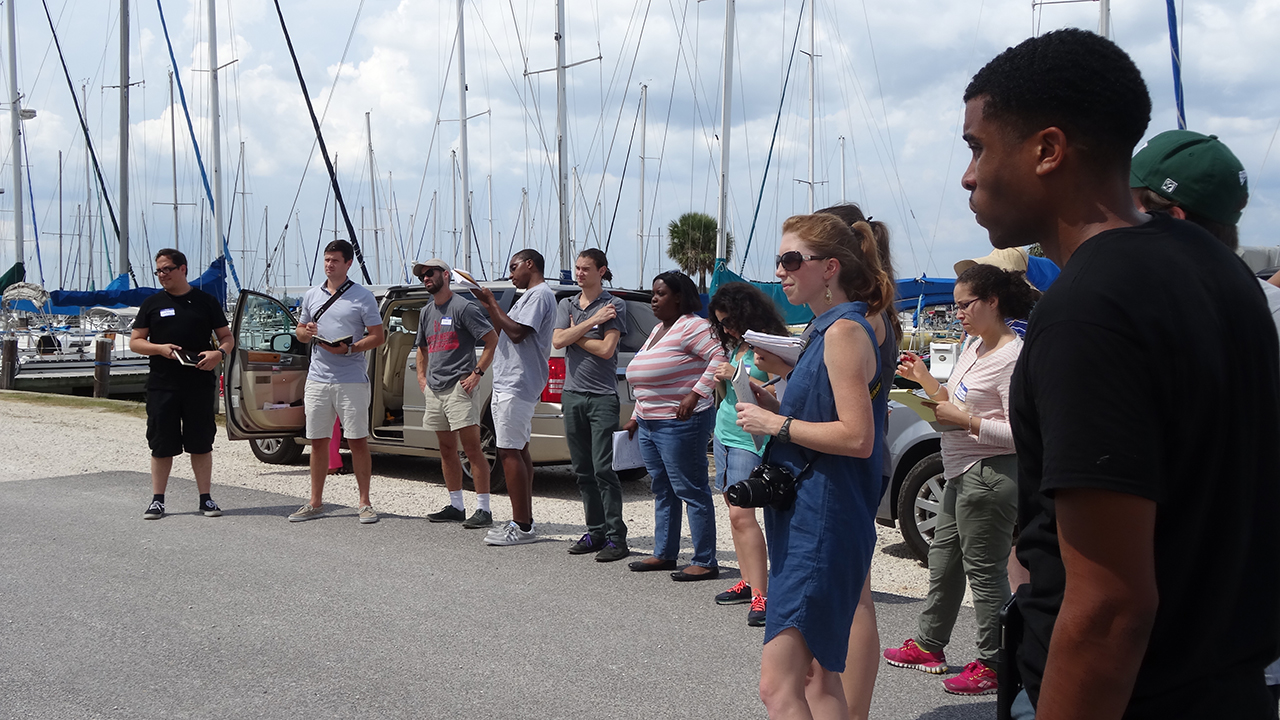content body
The Academic Sustainability Program has announces that 13 students have been accepted into the prestigious National Academies of Science, Engineering and Medicine’s Gulf Scholars Program (GSP). This program exemplifies Auburn’s unwavering commitment to community health and resilience, environmental protection and stewardship and environmental justice. These remarkable individuals were selected from a large pool of highly qualified applicants and were selected based on their outstanding academic records and demonstrated commitment to making a positive impact on the Gulf Region.
“I want to extend my congratulations to our first cohort of Gulf Scholar students, said Rebecca Retzlaff, Director of the Academic Sustainability Program. “The GSP is an incredible opportunity to earn national prestigious recognition, take Auburn classes and get involved in sustainability research projects at the same time. We look forward to seeing what this new generation of sustainability professionals, activists and scholars can achieve.”
The GSP will prepare undergraduate students to become change agents for inclusive Gulf sustainability and resiliency. As change agents, these students will learn to work across disciplines and engage in diverse communities with cultural competence to solve the complex and multifaceted problems impacting sustainability in the Gulf Region.
“I am super happy that I get to be involved in this program and am very excited to have a part in Gulf sustainability,” said Cole Bendics, a student in ecological engineering.
Students will receive a scholarship to complete the program. Gulf Scholars will be paired with community mentors who are working on sustainability issues. Community partners include nonprofit organizations, entrepreneurial businesses, and city governments in every field of study. Gulf Scholars will be invited to free monthly field trips, social events and learning opportunities.
“I am so excited to participate in this program because I care deeply for the conservation of our Gulf Coast beaches,” said Neva Schoettker, one of the GSP students majoring in marine biology. “I hope to learn more about what our society can do to help the coastal communities and to sustainably maintain this beautiful place we call home.”
The Gulf Scholars Program curriculum will consist of a core class from the Department of Sociology, Anthropology and Social Work, and electives from an interdisciplinary team of nine educators from Auburn who have been awarded Gulf faculty fellowships. These faculty represent many colleges at Auburn, including Liberal Arts; Forestry, Wildlife and Environment; Harbert; and Sciences and Mathematics.
The faculty members awarded a Gulf Faculty Fellowship from the National Academies will incorporate place-based sustainability into their classes in the coming years. The GSP will utilize the expertise of Auburn’s faculty to assure that Gulf Scholars develop the skills and knowledge needed to cultivate creative, innovative and entrepreneurial solutions to Gulf problems.
“The Gulf Coast is a global treasure,” said Jonathan Fisk, an associate professor in the Department of Political Science. “I am excited to collaborate with students who want to work for a more resilient, sustainable and inclusive Gulf region.”
The 2024-25 Gulf Scholars Program Students and Faculty Fellows include the individuals below. For more information about Auburn’s Gulf Scholars Program, visit www.aub.ie/gsp.
GSP Students
Neva Schoettker, marine biology, College of Sciences and Mathematics
Bella Johnston, political science, College of Liberal Arts
Cole Bedics, ecology engineering, Samuel Ginn College of Engineering and College of Agriculture
Messina Bombara, interior design, College of Human Sciences
Lillian Avis, wildlife ecology and conservation, College of Forestry, Wildlife and Environment
Olivia D’Orazio, biosystems engineering, Samuel Ginn College of Engineering and College of Agriculture
Cara Lanier, fisheries, aquaculture and aquatic sciences, College of Agriculture
James Moshier, architecture, College of Architecture, Design and Construction
John Pechon, management information systems, Harbert College of Business
Ace Frazier, civil/environmental engineering, Samuel Ginn College of Engineering
Lucy Taylor, psychology, College of Liberal Arts
Anna Fedak, interior design, College of Human Sciences
Alysha McCall, pre-veterinary medicine (microbiology), College of Sciences and Mathematics
GSP Faculty Fellows
Allie McCreary, parks and recreation management, College of Forestry, Wildlife and Environment
Rick Mattson, global programs, Harbert College of Business
Brian Hunter, global programs, Harbert College of Business
Ann Ojeda, geoscience, College of Sciences and Mathematics
Matthew Spencer, English, College of Liberal Arts
Jonathan Fisk, political science, College of Liberal Arts
Miriam Wyman, academic sustainability, College of Liberal Arts
Allison Vandenberg, women’s and gender studies, College of Liberal Arts
Wesley Anderson, forestry, wildlife and environment, College of Forestry, Wildlife and Environment





